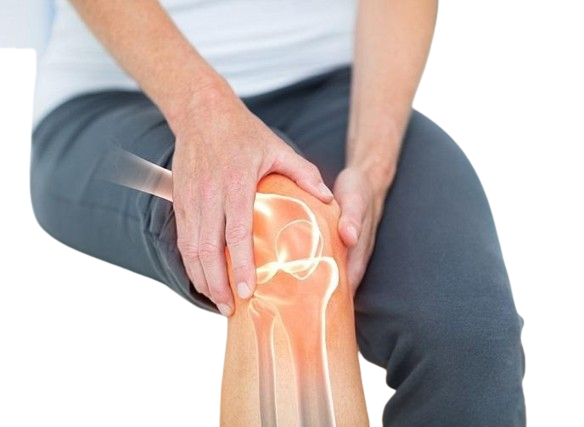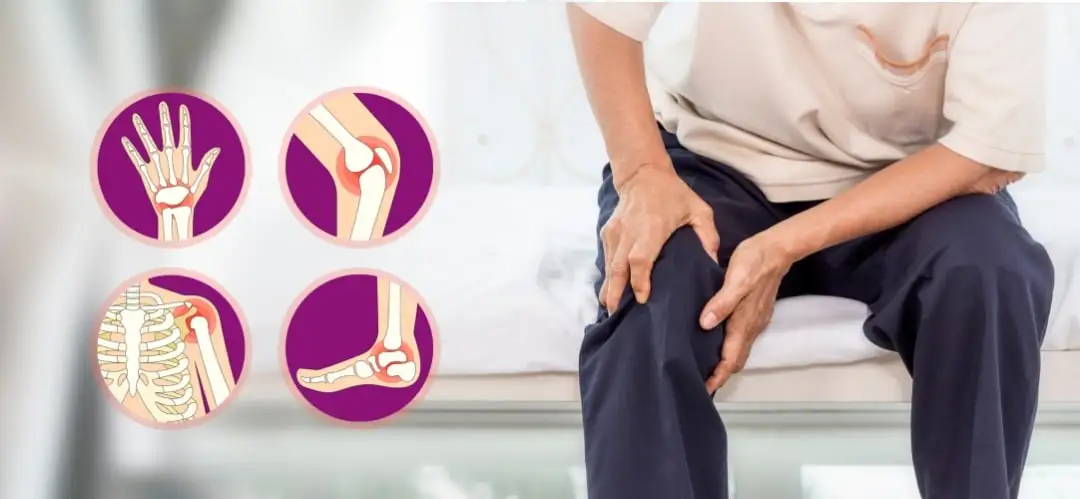Arthritis treatment Expert in Perumbakkam
Your Trusted Partner in Arthritis treatment
Arthritis is extremely common, especially in people older than 50. It causes joint pain, stiffness and inflammation. We are here to provide you with top-notch care and guidance to tackle your problems.

Understanding Arthritis treatment
What is Arthritis?
Arthritis is a disease that causes damage in your joints. Joints are places in your body where two bones meet.
Some joints naturally wear down as you age. Lots of people develop arthritis after that normal, lifelong wear and tear. Some types of arthritis happen after injuries that damage a joint. Certain health conditions also cause arthritis.
Arthritis can affect any joint, but is most common in people’s:
- Hands and Wrists.
- Knees.
- Hips.
- Feet and ankles.
- Shoulders.
- Lower back(Lumbar spine).
A healthcare provider will help you find ways to manage symptoms like pain and stiffness. Some people with severe arthritis eventually need surgery to replace their affected joints.
Visit a healthcare provider if you’re experiencing joint pain that’s severe enough to affect your daily routine or if it feels like you can’t move or use your joints as well as usual.
Types of Arthritis
There are more than 100 different types of arthritis. Some of the most common types include:
- Osteoarthritis: Wear and tear arthritis.
- Rheumatoid arthritis: Arthritis that happens when your immune system mistakenly damages your joints.
- Gout: Arthritis that causes sharp uric acid crystals to form in your joints.
- Ankylosing spondylitis: Arthritis that affects joints near your lower back.
- Psoriatic arthritis: Arthritis that affects people who have psoriasis.
- Juvenile arthritis: Arthritis in kids and teens younger than 16.
Depending on which type of arthritis you have, it can break down the natural tissue in your joint (degeneration) or cause inflammation (swelling). Some types cause inflammation that leads to degeneration.

Symptoms of Arthritis:
- Joint pain
- Stiffness or reduced range of motion
- Swelling (inflammation)
- Skin discoloration.
- Tenderness or sensitivity to touch around a joint
- A feeling of heat or warmth near your joints
What is the main cause of Arthritis?
What causes arthritis varies depending on which type you have:
- Osteoarthritis happens naturally as you age — a lifetime of using your joints can eventually wear down their cartilage cushioning.
- You may develop gout if you have too much uric acid in your blood (hyperuricemia).
- Your immune system can cause arthritis (including rheumatoid arthritis) when it damages your joints by mistake.
- Certain Viral infections (including COVID-19) can trigger viral arthritis.
- Sometimes, arthritis happens with no cause or trigger. Providers call this idiopathic arthritis.
What are the risk factors?
Anyone can develop arthritis, but some factors may make you more likely to, including:
- Tobacco use: Smoking and using other tobacco products increases your risk.
- Family history: People whose biological family members have arthritis are more likely to develop it.
- Activity level: You might be more likely to have arthritis if you aren’t physically active regularly.
- Other health conditions: Having Autoimmune diseases, obesity or any condition that affects your joints increases the chances you’ll develop arthritis.
At what age does Arthritis usually start?
Arthritis can develop at any age. When it starts depends on which type you have and what’s causing it.
In general, osteoarthritis affects adults older than 50. Rheumatoid arthritis usually develops in adults age 30 to 60.
Other types that have a more direct cause usually start closer to that specific trigger. For example, people with post-traumatic arthritisdon’t develop it until after their joints are injured, and gout doesn’t develop until after you’ve had high uric acid levels for at least several months.
Talk to a healthcare provider about your unique arthritis risk, and when you should start watching for signs or changes in your joints.
How do healthcare providers Diagnose Arthritis?
A healthcare provider will diagnose arthritis with a physical exam. They’ll examine your affected joints and ask about your symptoms. Tell your provider when you first noticed symptoms like pain and stiffness, and if any activities or times of day make them worse.
Your provider will probably check your range of motion (how far you can move a joint). They may compare one joint’s range of motion to other, similar joints (your other knee, ankle or fingers, for example).
Arthritis tests
Your provider might use imaging tests to take pictures of your joints, including:
- X-ray.
- Ultrasound.
- Magnetic resonance imaging(MRI).
- A computed tomography(CT) scan.
These tests can help your provider see damage inside your joints. They can also help your provider rule out other injuries or issues that might cause similar symptoms, like bone fractures (broken bones).
Your provider may use blood tests to check your uric acid levels if they think you have gout. Blood tests can also show signs of infections or autoimmune diseases.
What is Arthritis treatment?
There’s no cure for arthritis, but your healthcare provider will help you find treatments that manage your symptoms. Which treatments you’ll need depend on what’s causing the arthritis, which type you have and which joints it affects.
The most common arthritis treatments include:
- Over-the-counter (OTC) anti-inflammatory medicine like NSAIDs or acetaminophen.
- Corticosteroids(prescription anti-inflammatory medicine, including cortisone shots).
- Disease-modifying antirheumatic drugs(DMADs) if you have rheumatoid or psoriatic arthritis.
- Physical therapy or occupational therapy can help you improve your strength, range of motion and confidence while you’re moving.
- Surgery (usually only if nonsurgical treatments don’t relieve your symptoms).
Arthritis surgery
You may need surgery if you have severe arthritis and other treatments don’t work. The two most common types of arthritis surgery are joint fusion and joint replacement.
Joint fusion is exactly what it sounds like: surgically joining bones together. It’s most common for bones in your spine (spinal fusion) or your ankle (ankle fusion).
If your joints are damaged or you’ve experienced bone loss, you might need an (arthroplasty joint replacement). Your surgeon will remove your damaged natural joint and replace it with a prosthesis (artificial joint). You might need a partial or total joint replacement.
Your provider or surgeon will tell you which type of surgery you’ll need and what to expect.
How do I prevent Arthritis?
Some forms of arthritis happen naturally or because of health conditions you can’t change, so there’s not always a way to prevent it. However, you can lower your chances of developing arthritis by:
- Avoiding tobacco products.
- Following a diet and exercise plan that’s healthy for you.
- Doing low-impact exercise.
- Always wearing proper protective equipment for any activity that could damage your joints.
Frequently Asked Question on arthritis
Arthritis is a term that refers to inflammation of the joints. It encompasses a group of more than 100 different types of joint diseases, with the most common being osteoarthritis and rheumatoid arthritis.
Arthritis can affect people of all ages, genders, and backgrounds. Factors that may increase the risk include age, family history, gender (some types are more common in women), and certain lifestyle factors.
Diagnosis often involves a combination of medical history, physical examination, imaging tests (like X-rays or MRIs), and laboratory tests (such as blood tests).
Treatment varies depending on the type of arthritis but may include medications, physical therapy, lifestyle modifications, and in some cases, surgery. Pain management and inflammation control are common goals of treatment.
Certain dietary choices may impact arthritis symptoms. A balanced diet with anti-inflammatory foods, omega-3 fatty acids, and maintaining a healthy weight can contribute to overall joint health.
Yes, many organizations offer support groups for individuals with arthritis. Connecting with others who share similar experiences can provide emotional support and valuable information.
Yes, regular, low-impact exercise is often recommended for arthritis. It helps improve joint flexibility, strengthen muscles, and reduce pain. However, it’s essential to choose activities that are suitable for individual conditions.
